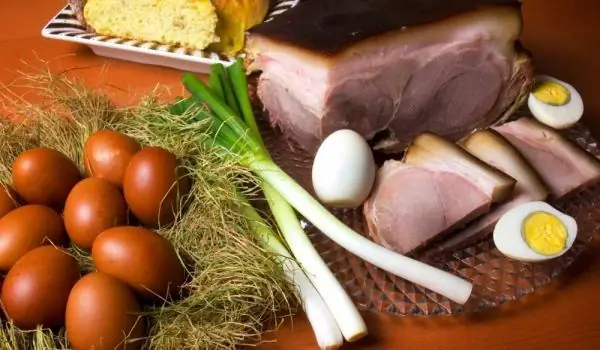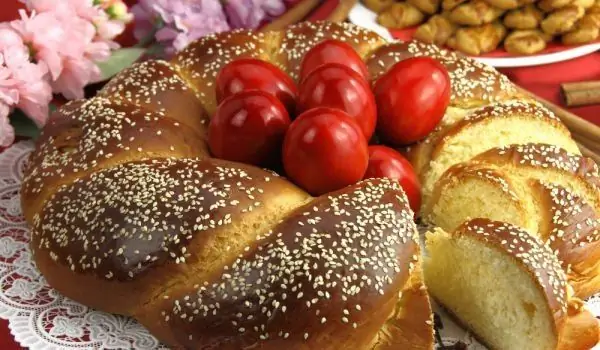2025 Author: Jasmine Walkman | [email protected]. Last modified: 2025-01-23 10:18
The Bulgarian Food Safety Agency announced that it has introduced a ban on the sale of eggs from domestic hens for Easter. As a reason for the ban, the BFSA pointed out that there are no guarantees that the grandmother's eggs are stored at the required temperature, and there is a possibility that their expiration date has expired.
The ban on sale is obviously not able to stop trade in them and it is swirling in full force in markets, markets and more. places. Homemade eggs are offered for 25-30 stotinki per piece, and the demand increases with each passing day.
It is an interesting fact that along with the hen's eggs, duck eggs are widely sold at the markets. Duck eggs are slightly larger than hens, and their owners advertise them as more nutritious. They are traded at 30 stotinki each and also enjoy great interest from the hosts.
Domestic eggs are prohibited for free sale because they do not meet the conditions set out in the Ordinance on direct deliveries.
It states that small quantities of hen and quail eggs are eligible for direct sale. The quantities should not exceed 40 percent of the daily quantity of eggs produced in each farm, and should not exceed 1000 eggs. per year.

Eggs, whether domestic or not, must be stored at a temperature of 5 to 18 degrees and must be delivered to consumers no later than 28 days after laying.
Hatching eggs, broken or cracked eggs, incubated eggs or eggs with an underdeveloped shell may not be offered for direct sale. Only livestock farms that are free of salmonella are allowed to offer eggs.
Egg producers have announced that the trade mark-up on eggs reaches 10 stotinki per piece. Currently, their price in the store network varies between 17 and 25 stotinki.
Domestic producers called on Bulgarians to buy eggs made in Bulgaria for Easter. They pointed out that the native eggs have guaranteed qualities, while half of the imported ones have expired.
Recommended:
They Check Eggs, Lamb And Easter Cakes En Masse For Easter

Massive thematic inspections in connection with the upcoming major Christian holiday Easter launched the Bulgarian Food Safety Agency. Experts from the Food Control Department will carry out unscheduled inspections at a number of outlets.
Inspections Of Eggs, Easter Cakes And Lamb Begin Before Easter

The joint inspections of the Bulgarian Food Safety Agency and the Consumer Protection Commission start before the Easter holidays. As of today, April 2, intensive inspections in the commercial network and online space of eggs, Easter cakes and lamb, which are traditionally present at the festive table, begin.
Attention! Dangerous Easter Eggs Flood The Market For Easter

The closer the bright Easter holidays get, the more intense the work of the inspectors from the Bulgarian Food Safety Agency (BFSA). Apart from low-quality egg paints, unlabeled eggs of unknown origin and quality, the agency's experts must also look out for lamb without the relevant documentation, which many enterprising traders will try to sell for Easter and St.
Easter Cakes With Dangerous Sweeteners And Old Eggs Flood The Easter Market

As Easter approaches, warnings from manufacturers and authorities about substandard products are expected to flood the market. The most sought-after products are the most manipulated - eggs and Easter cakes. Easter cakes, like most sweet products, are massively filled with sweeteners.
We Threw Away Tons Of Easter Cakes And Eggs After Easter

Tons of edible Easter cakes and eggs have gone to waste after the Easter holidays. Observations show that Bulgarians continue to buy more than they actually eat. Our nation is at the top of the food waste charts. This trend is strongest during the big holidays in our country.

